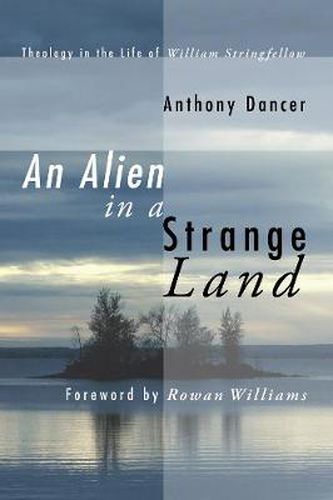Readings Newsletter
Become a Readings Member to make your shopping experience even easier.
Sign in or sign up for free!
You’re not far away from qualifying for FREE standard shipping within Australia
You’ve qualified for FREE standard shipping within Australia
The cart is loading…






This title is printed to order. This book may have been self-published. If so, we cannot guarantee the quality of the content. In the main most books will have gone through the editing process however some may not. We therefore suggest that you be aware of this before ordering this book. If in doubt check either the author or publisher’s details as we are unable to accept any returns unless they are faulty. Please contact us if you have any questions.
This unique theological biography traces the emergence of William Stringfellow’s theology and the place of biblical politics within it. It highlights the centrality of life and work to his theology, and the inseparability of one from another. It tells the story of an ordinary life made less ordinary, radicalized through becoming a biblical person. Amidst periods in America of threat and prosperity (1950s), and later dissent and protest (1960s), Dancer examines not only how Stringfellow held America to account, but the way in which he offered a hopeful alternative in which the place of the Bible and the world were both central. It explores the way Stringfellow learned that the Bible makes sense of us and not us of it. This is biblical politics–a radicalizing, organizing engagement with the person and the world of which the church seems to sadly have lost both sight and interest. The advocacy of Karl Barth, his love of the circus, his scholarship to LSE, the National Conference on Religion and Race, his love for his parable of hope, Anthony Towne, and his prophetic confrontation with Johnson’s Great Society, all offer clues and insights into this radicalizing force at work in his life. Yet it was a life-threatening illness and personal confrontation with death in many ways became the final point of radicalization that lead to the production of Ethic for Christians and Other Aliens in a Strange Land-ethics as pertinent to today as they are to any age.
$9.00 standard shipping within Australia
FREE standard shipping within Australia for orders over $100.00
Express & International shipping calculated at checkout
This title is printed to order. This book may have been self-published. If so, we cannot guarantee the quality of the content. In the main most books will have gone through the editing process however some may not. We therefore suggest that you be aware of this before ordering this book. If in doubt check either the author or publisher’s details as we are unable to accept any returns unless they are faulty. Please contact us if you have any questions.
This unique theological biography traces the emergence of William Stringfellow’s theology and the place of biblical politics within it. It highlights the centrality of life and work to his theology, and the inseparability of one from another. It tells the story of an ordinary life made less ordinary, radicalized through becoming a biblical person. Amidst periods in America of threat and prosperity (1950s), and later dissent and protest (1960s), Dancer examines not only how Stringfellow held America to account, but the way in which he offered a hopeful alternative in which the place of the Bible and the world were both central. It explores the way Stringfellow learned that the Bible makes sense of us and not us of it. This is biblical politics–a radicalizing, organizing engagement with the person and the world of which the church seems to sadly have lost both sight and interest. The advocacy of Karl Barth, his love of the circus, his scholarship to LSE, the National Conference on Religion and Race, his love for his parable of hope, Anthony Towne, and his prophetic confrontation with Johnson’s Great Society, all offer clues and insights into this radicalizing force at work in his life. Yet it was a life-threatening illness and personal confrontation with death in many ways became the final point of radicalization that lead to the production of Ethic for Christians and Other Aliens in a Strange Land-ethics as pertinent to today as they are to any age.